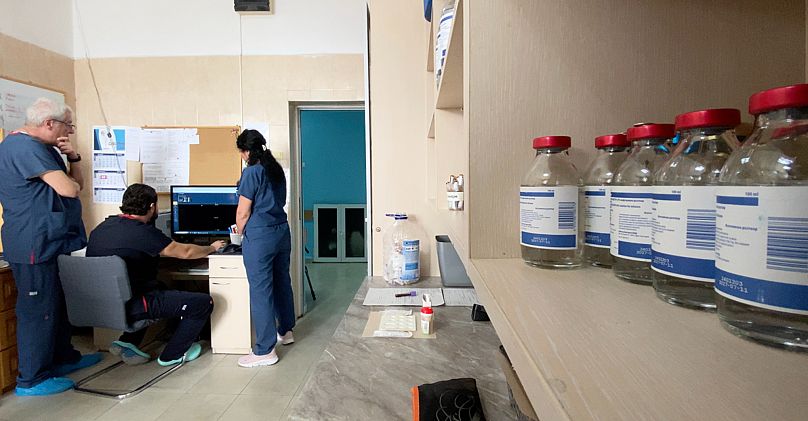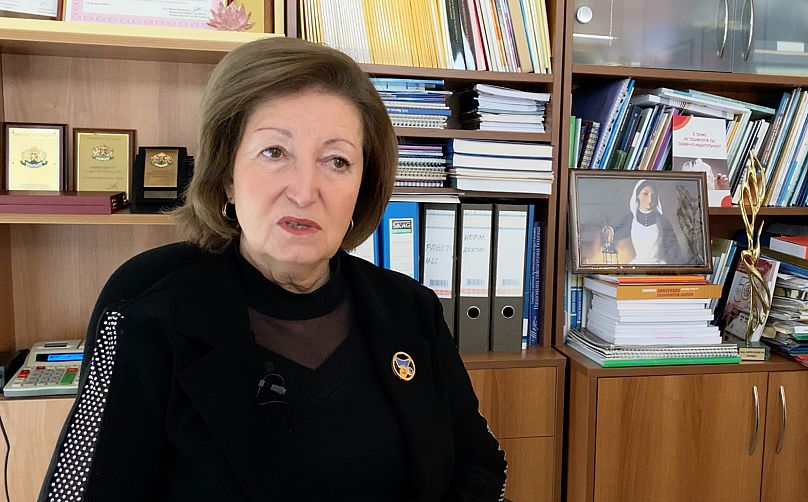A substancial number of EU nurses is approaching retirement age, with limited younger replacements entering the profession. Nurses often face challenging working conditions, including long hours, high patient-to-staff rations, low salaries and emotional strain. Many nurses report burnout, impacting retention rates and discouraging vocation in young people.
Competition among EU countries to attract and retain medical professionals further exacerbate the situation. Aware of the problem, the EU is developing a 3-year initiativeto launch new, better training programmes to attract young students to the nursing field.
Bulgaria is a clear example of the current challenges. In a decade, the country has lost over 10% of its nurses, including many leaving for other EU Member States in search for better salaries and working conditions. Take for instance Elza. She is one of the 144 nurses at the Blagoevgrad State Hospital in southwest Bulgaria. Elza works at the Orthopedics ward.

Despite improvements last year, the hospital operates below the ratio of at least 2 nurses per doctor, widely considered by health professionals as the minimum standard for good practice.
“My dream was always to work as a nurse, although there were many, many other options for my studies. But I just wanted to become a nurse. My mother is also a nurse, my children too. It's a good job for me”, says Elza. “(But) We receive very little money and for this we are forced to work in two places. I'm given days off, when I can see my family. We don´t have to stay 24 hours in the ward, but we spend a lot of hours working. I'm getting tired, I'm really getting tired. A lot of work scares young nurses away. So one by one they just disappear”
Like many other EU nurses, Elza clearly finds it difficult to speak out about the issue. They fear for their jobs. But she can´t really hide the high personal price her beloved profession often implies.
“Perhaps our work is not appreciated in Bulgaria”, she says. “I could give a lot of examples, situations which are not fair. But really we somehow feel devalued, because you work 12 hours, you deprive yourself of holidays, you deprive yourself of weekdays, evenings away from the family, right? It all comes down to the financial side”.
Bulgaria is short of estimated 17,000 nurses for its health system to work efficiently. So how to solve or at least improve the situation?

Milka Vassileva is the President of the 32,000 member-strong Bulgarian Association of Healthcare Professionals. She has been working as a clinical nurse for 43 years.
Nurses´ work matters, she says, and it should be recognized accordingly, she claims.
“According to our calculations, in order for nurses to remain in Bulgaria, the starting salary would have to be at least three times the minimum salary in the country”, Milka Vassileva says. “What can the European Commission do? We´ve already witnessed many declarations, different financial and whatever documents have been referred to the Member States. Even in the EU´s semester-long report on Bulgaria, it is explicitly written that investments in health care should be increased, so that nurses have the opportunity to work on what they were really trained. And this only in medical institutions, but also in outpatient care, which is not currently the case.”
Experts agree that, other than funding, any strategy at EU level should also include improvements in aspects like planning, recruitment, training, working conditions, and professional development.







